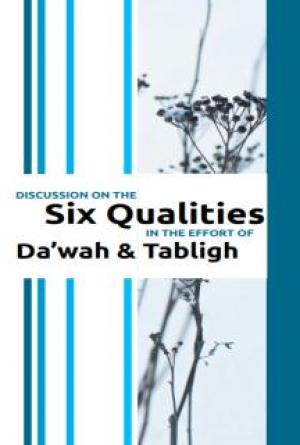Chapter 4
7 But to each one of us grace was given according to
the measure of Christ’s gift. 8 Therefore He says:
“When He ascended on high,
He led captivity captive,
And gave gifts to men.”[b]
9 (Now this, “He ascended”—what does it mean but that
He also first[c]
descended into the lower parts of the earth? 10 He who
descended is also the One who ascended far above all the heavens, that He might
fill all things.)
11 And He Himself gave some to be apostles, some prophets, some evangelists, and some
pastors and teachers, 12 for the equipping of the saints for
the work of ministry, for the edifying of the body of Christ, 13 till
we all come to the unity of the faith and of the knowledge of the Son of God,
to a perfect man, to the measure of the stature of the fullness of Christ; 14 that
we should no longer be children, tossed to and fro and carried about with every
wind of doctrine, by the trickery of men, in the cunning craftiness of
deceitful plotting, 15 but, speaking the truth in love, may
grow up in all things into Him who is the head—Christ— 16 from
whom the whole body, joined and knit together by what every joint supplies,
according to the effective working by which every part does its share, causes
growth of the body for the edifying of itself in love. Ephesians 4:7-16
The
fellowship of the saints is a magnificent gift.
Amongst one another we find encouragement, support and the joyful
exploration of the deeper places in God.
The Body of Christ joined together supplies unto itself what is needful
for its own edification.
The
gifts that are imparted by God, when administrated by the Holy Spirit, bear the
intention of creating unity and function.
What gifts we have, when ministered properly, will equip and build other
people, not to mention the Body of Christ as a whole. The operation of those gifts knits us
together, bringing unity of faith, unity of purpose, unity of heart.
Unity
is a condition created in an environment prepared for its existence. More than learning how to "get
along", unity creates function.
Ephesians 4:16 tells us that a joint supplies into the body. A joint is where two distinct, separate parts
are bonded in such a way that it creates an operation which allows mobility. Mobility, when exercised, produces
strength. There is not a part within the
body that operates as it should independent of joints, independent of the
connections it has with other parts.
When
Hebrews tells us to not forsake the assembling of ourselves together, this is
the idea being conveyed. Assembling is a
collection of parts put together in such a way that it creates function. Unity is the harmonious movement of those parts
in unison together, responding to the head which is Christ.
The church is a people, not a
place. With that said, many Christians
go to church and are involved at various levels of church activity. Though they continue this way for years, they
never actually experience the enjoyment of true fellowship, of unity, of what
it means to be assembled together. Our
assembly is not merely about a weekly meeting or the place in which it is
held. Being assembled together is about
a people whose hearts and lives are intertwined by the thread of the person of
Jesus Christ. It is lives enriched by
our souls touching one another as a normal, consistent course of life. Such is a life in which we become gathered
together in His name in small pockets and large, in planned and impromptu ways,
in convenient and inconvenient times. We
become acquainted with one another's successes and failures. We become one. In becoming one, we operate in the
fullness
of who we were made to be.
Those
joints, accompanied by the presence of unity, create function within us and
those around us. The function it creates
is in accordance with the gifts and callings we have from God, not just the
church programs that need someone to work them!
Allow
me to digress for a moment while I speak to an unfortunate reality. So many people remain in divided, toxic
environments for years in order to fulfill a false notion of obligation as to
what it means to not forsake the assembling of ourselves together. It is a tremendous loss. The loss of spiritual health and growth
because of such misunderstanding is not only unfortunate, it is sad. What’s more, that loss is more common than we
might care to admit.
If
you were to make inquiry in many churches, the majority of the people there
would acknowledge either a lack of understanding of the gifts God has given
them, or an uncertainty of how to use those gifts. While it is true that such uncertainty can be
attributed at times to a lack of priority or a lack of pursuit of the call of
God, another significant source of our atrophy is something else.
There
is very little empowerment in the Body of Christ. Many Christians sit idly by, not because of a
lack of desire to walk out what God has put in them, but a lack of
opportunity. Many, if not all gifts, are
designed to function through the unity of the Body of Christ. Most of those gifts will never come to
fruition because of religious systems that are in place which give preeminence
to a few so they may build their own kingdoms.
The
Body is meant to function exactly as that- a body. When we restrict ourselves to church
environments that function in ways other than that, it restricts the full
measure in which God is able to use us to benefit and bless other people.
Having
tasted the heavenly gift, the priorities of the world take on a different
meaning. The drive to further excel in
the worlds methods, to measure success by wealth, to acquiesce to human
pressures to perform are, in part, the thorns that choke out the word. Those pressures to perform somehow find their
way into our communion with God and one another. The same efforts to excel become the driving
force behind our efforts. The same
frustrations and discontentment spiritually are the inevitable result. Do it the world's way, you will get the
world's fruit. These pressures to
perform have become ingrained in the majority of our church culture.
In
addressing these things, and the divisions which result from them, it is in no
way my intent to condemn or lay accusation against those who are children of
God, but find themselves subject to such systems. What I know to be true is that myriads of
people abide there, with the deepest longings for renewal in their spirit,
refreshing in their bones, but they never find it because they are bound with
the obligations of manmade tradition.
Our
true and singular source of strength is the tangible presence of the person of
God communing with the deepest part of our being. In those depths, the fires of what we call
true revival are stoked. The more we
find our satisfaction solely in Christ, all the more can we distinguish the
declaration of demise scrawled upon the decaying walls of this world.
Let
us not expect a man, even a Godly man, to bring revival to us. Only the Spirit of God can ignite an eternal
flame which ever burns. Our God truly is
a consuming fire. Why would we want to
be spoon fed from another that which we may feast freely of from our Father's
table?
We
must not look to one another, as human beings, for strength. Rather, we must look to God in each member,
strengthening us all, uniting us all, making us one. My strength is not my brother, it is Christ
in my brother. If my brother gives to me
anything other than Christ, he gives me nothing.
That
does not suggest a lack of need for one another- quite the opposite. Christ who is in us, will draw us together in
ways we cannot even conceive apart from Him.
Furthermore, it is His will and intention to do so. What His intention is not, is for us to look
to other people for what can only be found in Him. Psalm 118:8 says, “It is better to trust in
The Lord than to put confidence in man.”
This verse is reportedly the very center of the Bible. The message it bears is plain and
straightforward. You can trust God or
you can trust man, but you cannot do both.
Many
of us carry the testimony of a miracle God has done in our life, our family or
our home. We can also state in many of
the times of great desperation which led up to that miracle, God helped us when
man could not. Does that mean God does
not use the hand of others to bring aid to people? Of course, it does not. What it means is that even those things are
sourced in Him. With that in mind, if
the center of our concern is what other people think of us, of our Lord, or of
His word, then we have no center at all.
When
our heart is true, we do not seek the honor of God for the sake of possessing
the honor before men. Instead, we seek
the honor for the sake of honoring the giver of all good things. Do not seek to be honored among men as though
exaltation in their eyes and the pride of it mean anything. Honor from men is nothing, a fleeting wind
that brushes across your face, passes by and is gone.
It
is a sorrowful thing to see scores of Believers in atrophy, at least in part,
because church leadership or church culture hangs chains of tradition on their
necks, then ridicules them because they cannot walk under the weight of bondage. It is not unity to be in harmony with
division. It is not unity to compromise
with a lie. Some things are worth
standing up for. Some things that we
stand for will demand of us that we stand against other things. The harsh truth is that you will never remove
division from the church world in this age.
But, you can remove yourself from division and into unity.
I, therefore,
the prisoner of the Lord, beseech you to walk worthy of the calling with which
you were called, 2 with all lowliness and gentleness, with
longsuffering, bearing with one another in love, 3 endeavoring
to keep the unity of the Spirit in the bond of peace. 4 There is one body and one Spirit,
just as you were called in one hope of your calling; 5 one
Lord, one faith, one baptism; 6 one God and Father of all, who is above all, and through all, and in
you all. Ephesians 4:1-6
Unity
is a reflection of the nature of God being produced from within us by His
Spirit. It is not sheer coincidence that many of the fruit of the Spirit
identified in Galatians 5 are also listed in this passage. A call to unity goes beyond a pitiful human
effort to simply get along. Unity is the
ultimate demonstration of the oneness of God being produced in us
corporately. Unity can be sourced only
in God, thus the reason the scripture says "the unity of The
Spirit." That unity is preserved by
the overwhelming majesty of His peace that fashions two together and makes them
one. Peace is a bond.
There
is no separation in God. Within Him,
there is not a conflicting purpose, thought or idea between Father, Son and
Holy Spirit. Everything that God has
ever spoken, thought or done has issued forth from a constant, unalterable
harmony that is at the core of His nature.
So then, unity amongst us is that same harmony making many into one- one
functioning body. His peace knits us together
in heart and in mind without removing the distinction or the uniqueness of what
each of us was created to be. In fact,
the fullness of your gift can only arrive at its highest potential as a result
of being joined together in unity.
If
unity is God producing the oneness that is inherent to His nature within us
corporately, what then is division?
11 For it has been declared to me concerning you, my
brethren, by those of Chloe’s household,
that there are contentions among you. 12 Now I say this, that
each of you says, “I am of Paul,” or “I am of Apollos,” or “I am of Cephas,” or
“I am of Christ.” 13 Is Christ divided? Was Paul crucified for
you? Or were you baptized in the name of Paul? 1 Corinthians
1:10-13
And I, brethren,
could not speak to you as to spiritual people
but as to carnal, as to babes in Christ. 2 I fed you with milk
and not with solid food; for until now you were not able to receive it, and even now you are
still not able; 3 for you are still carnal. For where there are envy, strife, and divisions
among you, are you not carnal and behaving like mere men? 4 For when one says, “I am of Paul,”
and another, “I am of Apollos,”
are you not carnal? 1 Corinthians
3:1-4
The
reason for the division that existed within the Corinthian church was quite
clear. At the heart of it were people
that confessed Christ, but lived in and were governed by their carnality. Their perceptions were governed solely by
their natural senses, their fleshly desires.
As such, they were incapable of receiving spiritual things.
When
people conduct themselves in such a way, governed by natural desires and
producing the grievous works of the flesh, the inevitable result will always be
division. Within the Corinthian church,
they separated themselves into sects based upon which teacher they gave the
greater credence to.
The
letter of First Corinthians was written for the purpose of addressing and
correcting the complicated, significant problems within that church. As a spiritual father to them, exercising
love and concern, Paul found it necessary to address first, and with the
greatest adamancy, the division that existed amongst them. It is a problem that has never gone
away.
We
see the replication of the division of the Corinthian church to this day. The name we ascribe to it is “denominations”. A denomination is a group that has separated
itself, set itself apart, or isolated itself.
Often they are comprised of member churches which are obligated to
adherence of whatever standard or bylaws that particular denomination
espouses. Most, if not all of those
denominations, were created in some way by contentions or splits that happened
within the church.
Regardless
of the name, those are organizations that are founded on or exist because of
division.
Scripture
says "a little leaven, leavens the whole lump." You cannot be immersed in an organization
founded on division, and division not permeate into every aspect of what it
becomes and everyone who touches it.
Being founded on division, it is subsequently founded on carnality. As such, it will appeal to and provoke
carnality, continually pressuring those within it to make a choice between it
and unity, between it and the truth, between it and some of the deepest
convictions of your heart.
Let
me be clear about something else- division does not only haunt the halls of
denominational churches. It is a bitter
tare that can be found growing anywhere- denominational churches,
non-denominational churches, home churches.
The results will be the same in that it will force someone to choose
between it and one another.
In
order to make a tree into a useful bench, you must first take it out of the place
where it grows and kill it. While that
bench may serve you well in providing something beautiful and comfortable for
your purposes, it will never again produce fruit. Carnal churches, filled with division, turn
people into benches. Their efforts are
concentrated on the fulfillment of their fleshly, self seeking desire. As a consequence, they take the people at
their disposal and fashion them into instruments that suit their own design. In so doing, they limit, if not all together
prohibit true fruitfulness and function in the body of Christ.
One of the ways you can recognize such
motivations is their focus. Their drive
often centers around how many people can they get into the seats and of those
people that are in the seats, how many can be convinced to give regularly into
the offering basket.
Division has other faces as well. Every carnal doctrine appeals to
carnality. It often stirs a sense of
superiority over other believers, and appeals to ambitions fueled by self
interest and pride. Anyone who has been
a Christian for any length of time has witnessed some variant of a message proclaiming
a new move of God. It is often presented
as new revelation, superior methods, a godlier leader, or similar things. These people gather a following by
compulsion, insisting that others get on board or be left behind because they
are declaring what God is really doing in the earth today. That type of poison has been at the heart of
a great deal of the division that has plagued us. Carnal men build their own kingdoms to gather
tribute to themselves.
The message of the gospel and the intent
of God within that message, which is Christ in you, are not hidden
mysteries. They are clearly revealed. What it reveals is plainly communicated and
God is not withholding information.
Therefore,
when someone brings to your ears the assertion that they posses hidden, secret
knowledge- special knowledge- be careful!
Such declarations should raise the warning flag as high on the mast as
it can fly. Special knowledge, as it
were, is the lie by which Satan deceived Adam and Eve and is a tool he uses to
this day.
All of these sources of division are
tools used by the enemy or taken up by men which are meant to appeal to
carnality. Thus, they become a source of
poison amongst us. Consider what the
scripture says:
Where do wars and fights come from among you? Do they not come from your desires
for pleasure that war in your members? 2 You lust and do
not have. You murder and covet and cannot obtain. You fight and war. Yet you do
not have because you do not ask. 3 You ask and do not receive,
because you ask amiss, that you may spend it on your pleasures. 4 Adulterers and
adulteresses! Do you not know that friendship with the world is enmity with
God? Whoever therefore wants to be a friend of the world makes himself an enemy
of God. (James 4:1-4)
What
James makes clear to us is that every war ever waged, whether it was nations
rising against each other, personal disputes amongst neighbors, or divisions
within the church, was provoked by desires for pleasure within the heart of one
or more parties involved.
Pleasure,
as used in this verse, is an interesting word in the Greek. This word is where we get the English word
"hedonism." Hedonism is a
manner of life in which the thoughts, actions and motives revolve around a
person's own self gratification. In
other words, they seek fulfillment in life by satisfying whatever desires for
pleasure they have. That desire is not
limited to sexual pleasures, but would include desires for power, wealth,
frivolity or anything else that the heart may wish to obtain. For such people, the apprehension of those
things becomes the meaning of life in a sense.
Everything revolves around fulfilling those desires.
Something
that James tells us is that hedonism, desires for pleasure, is one of the
reasons we ask for things from God and do not receive. The motivation for our request is a desire to
fulfill those pleasures. We want God to
broker our hedonism.
Those
same desires are at the heart of every contention that rages amongst us and
every division between us. Therefore, it
could be understood that unity begins in the heart of each member of the Body
of Christ being shaped by, and bearing the fruit of our God.
In
drawing attention to these things, the attempt is by no means an effort to
patronize you with some empty doctrine which gives you two easy steps to unity,
wrapped in a bow, and presented for your enjoyment. The reasons for division boil down to the
carnality of man and the source of unity being the oneness of God. How deep a well that is to drink from?!
To
be drawn into unity, we must be drawn out of division if that i







